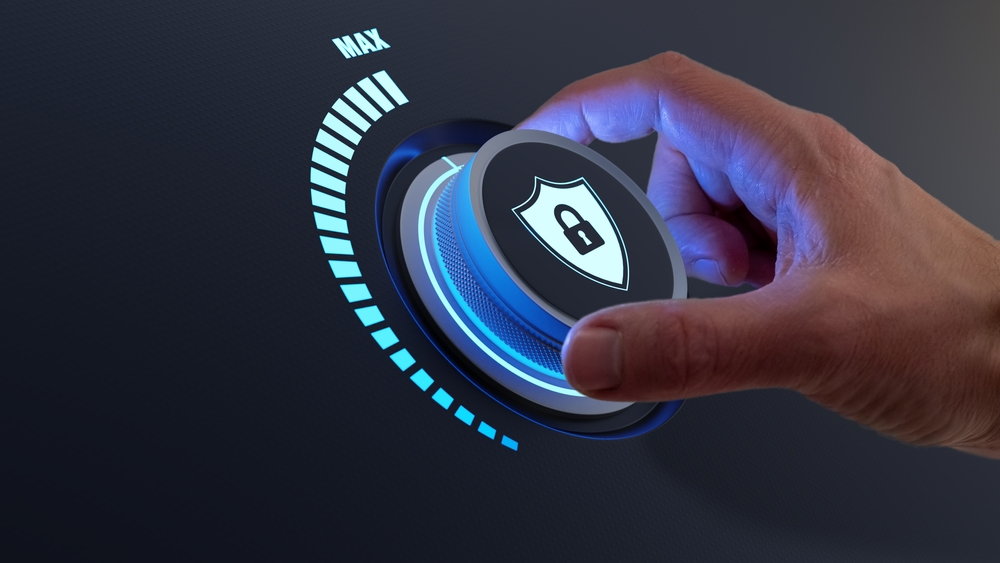With rising cyber threats, skilled professionals are key to protecting your business. Expanding your team enhances threat detection, prevention, and response. This article explores how staff augmentation boosts your cybersecurity and minimizes risks.
Understanding Cybersecurity Staff Augmentation
What is Cybersecurity in Staff Augmentation?
Let´s explore the meaning of cybersecurity in staff augmentation. It is the process of hiring skilled cybersecurity professionals temporarily to fill gaps in your team or address specific security needs. It helps businesses quickly scale their defenses and access expertise without long-term commitments.
The Importance of Cybersecurity in Staff Augmentation
In this case, Cybersecurity in staff augmentation ensures that organizations can address evolving threats effectively by bringing in specialized expertise. It helps fill critical skill gaps, enhances threat detection, and supports compliance with security standards, all while offering flexibility to scale as needed.
Key Differences: Staff Augmentation vs. Traditional Hiring
Staff augmentation differs from other hiring models like outsourcing, managed services, and consulting by offering flexible, in-house support.
Unlike outsourcing, which transfers tasks to an external provider, staff augmentation integrates external experts into your team for seamless collaboration. It contrasts with managed services, where a third party fully handles specific operations, and with consulting, which focuses on short-term strategic advice rather than ongoing support.
To sum up, this model provides a scalable solution to fill skill gaps while maintaining control over your projects.

Core Advantages of Cybersecurity in Staff Augmentation
Cybersecurity staff augmentation offers expert talent to minimize risks, prevent data breaches, and reduce future costs. A trusted staffing partner ensures stronger defenses and boosts long-term profitability. Let’s revise some key points!
Minimizing risks and preventing attack
With dedicated cybersecurity professionals, organizations can proactively identify vulnerabilities, mitigate potential threats, and establish robust defenses to reduce the risk of cyberattacks.
Avoid improper data manipulation
Experienced staff ensures secure data handling, preventing unauthorized access, manipulation, or breaches that could compromise sensitive information and damage business integrity.
Profitability: Prevention of future cost, improve Quality, Budget
Investing in staff augmentation prevents costly breaches, enhances the quality of security measures, and aligns with budget constraints by offering flexible, scalable solutions.
Enhanced Flexibility, Scalability, and access to reliable Teams
Staff augmentation allows organizations to quickly adjust team size and skills to meet changing demands, ensuring reliable support without overcommitting resources.
Quick Response to Emerging Threats and Compliance Requirements
A well-equipped team can respond rapidly to new threats, implement security updates, and ensure compliance with industry regulations to avoid penalties and reputational damage.
Gaining Access to Specialized Skill Sets
Organizations can access top-tier expertise in niche cybersecurity areas, such as penetration testing, incident response, and compliance auditing, to strengthen their overall security posture.

Common Cybersecurity Challenges and Solutions in Staff Augmentation
It's not all smooth sailing because staff augmentation can bring cybersecurity challenges. This section covers key issues and solutions for a secure and efficient integration of external teams.
1. Data Security Risks
When augmenting your team with external professionals, there's always the risk of unauthorized access to sensitive company data. Managing data security across a larger, more dispersed team becomes increasingly complex, requiring strict protocols to prevent breaches or misuse of information.
2. Weak Endpoint Security
External staff often use personal or remote devices to access company networks, and these devices may not be as secure as corporate-managed ones. Weak endpoint security can create an entry point for cyberattacks if devices aren’t properly secured or monitored.
3. Third-Party Vulnerabilities
Collaborating with third-party vendors or staffing agencies can introduce vulnerabilities, especially if their security measures fall short. Without proper due diligence, these partnerships can become pathways for cybercriminals to exploit.
4. Insufficient Awareness of Security Protocols
Temporary staff might not be fully versed in your company’s specific security policies or practices. This knowledge gap can lead to unintentional security breaches, such as mishandling data or failing to adhere to access controls.
5. Compliance with Data Protection Regulations
Ensuring that all staff, including temporary workers, follow data protection laws and industry regulations is critical. Non-compliance with standards like GDPR or HIPAA could result in severe financial penalties and harm your organization’s reputation.
6. Insider Threats
Any employee—whether a permanent or temporary team member—can pose a security risk if they gain unauthorized access to sensitive information. Managing these risks requires strong access controls, constant monitoring, and clear protocols to detect and respond to potential threats.
7. Difficulty Ensuring Consistent Security Practices
Maintaining consistent security practices across a mixed team can be challenging. Adhering to established standards like ISO 27001 or NIST is essential for a strong security framework. For instance,Jalasoft's ISO 27001 certification showcases our commitment to robust security, ensuring that both permanent and temporary staff follow the same high standards.

Strategic Implementation of Cybersecurity in Staff Augmentation
Effectively integrating cybersecurity into staff augmentation requires more than just hiring experts—it’s about creating a cohesive, secure framework that aligns with your organization’s goals and protects against evolving threats.
How to identify when it is necessary to strengthen the team
Recognizing when your cybersecurity team is stretched thin is important. Signs include an increase in security incidents, slower response times, or difficulties keeping up with evolving threats and compliance requirements. Strengthening the team ensures your organization stays ahead of potential risks.
Best Practices for Integrating Augmented Staff
Successful integration of augmented staff involves clear communication, onboarding processes, and alignment with your existing team. Ensure new members understand your cybersecurity goals, tools, and practices for a smooth transition.
Establishing Clear Roles, Responsibilities, Cybersecurity Protocols
Clearly defined roles and responsibilities, coupled with well-communicated cybersecurity protocols, are essential for efficient collaboration. This ensures that augmented staff contribute effectively while maintaining consistent security standards across your organization.
Exploring Specialized Areas for Cybersecurity Expertise
Generic cybersecurity measures are no longer enough. Exploring specialized areas of cybersecurity expertise helps to build a robust defense against targeted attacks and emerging vulnerabilities.
Governance, Risk Management, and Compliance (GRC)
Experts in GRC ensure your organization meets regulatory requirements while effectively managing risks and maintaining governance frameworks.
Advanced Threat Detection and Incident Response
Specialized professionals use cutting-edge tools to detect and respond to emerging threats quickly, minimizing damage and preventing future breaches.
Vulnerability Management and Penetration Testing
Skilled experts identify system vulnerabilities and perform simulated attacks to find weaknesses before malicious actors can exploit them.
Security Awareness Training and Human Factor Mitigation
By focusing on human behavior, these experts provide training to prevent security breaches caused by employee error, helping create a culture of security awareness across the organization.

Evaluating Cybersecurity in Your Staff Augmentation Providers
Evaluating the cybersecurity practices of your staff augmentation providers is vital to ensure they meet your security standards and effectively protect sensitive data. Let’s revise some facts!
Criteria to Consider When Choosing a Partner
When selecting a staff augmentation provider, it’s essential to evaluate their overall compatibility with your organization’s goals. Consider factors like their approach to security, scalability, and ability to meet specific business needs while ensuring smooth integration with your existing teams.
Assessing Experience and Expertise in Cybersecurity
A strong cybersecurity partner should have extensive experience in tackling the specific security challenges your organization faces. Ensure the provider’s experts possess relevant certifications, a deep understanding of industry standards, and a track record of successfully managing complex cybersecurity environments.
The Role of Case Studies and References in Decision Making
Case studies and client references are valuable tools in assessing a provider’s credibility. They offer insight into how the provider has addressed similar cybersecurity challenges, the results they’ve achieved, and the level of service they can deliver, giving you confidence in their ability to protect your business.
Cybersecurity Future Trends in Staff Augmentation Services
The future of cybersecurity staff augmentation will focus on leveraging advanced technologies and specialized talent to help businesses stay ahead of new threats and strengthen their digital defenses. Here are some key points!
Emerging Technologies Impacting Cybersecurity
New technologies like blockchain, quantum computing, and the Internet of Things (IoT) are reshaping cybersecurity, creating new opportunities and challenges. These advancements require businesses to stay agile and adopt innovative strategies to stay secure.
Read this and be ready to optimize your software development process with nearshore agile! Discover how dedicated or delivery teams can drive faster software delivery, streamlined collaboration, and sustainable growth for your projects.
The Growing Importance of Remote Cybersecurity Expertise
As we have seen, as remote work becomes more widespread, the demand for remote cybersecurity experts is rising. This shift offers organizations access to a global talent pool and the flexibility to respond to threats more efficiently from anywhere in the world.
How Artificial Intelligence is Shaping Staff Augmentation
AI is transforming staff augmentation by automating threat detection, improving incident response times, and enhancing overall cybersecurity operations. AI-powered solutions allow businesses to scale their security teams without compromising on quality.

Next Steps for Effective Cybersecurity Enhancement
What do you need to build a stronger cybersecurity strategy? Clear planning, expert guidance, and ongoing evaluations are essential to keeping your organization protected and resilient.
Mapping Your Cybersecurity Needs and Objectives
Begin by assessing your current cybersecurity landscape and identifying gaps. Define clear objectives aligned with your business goals to ensure your strategies address the most critical areas.
Engaging with Experts: Setting Up Initial Consultations
Collaborate with cybersecurity professionals through consultations to evaluate your needs, explore solutions, and create a tailored roadmap for implementing effective measures.
Monitoring and Measuring the Impact of Augmented Teams
Regularly track the performance of augmented staff by analyzing metrics such as incident response times, risk reduction, and overall system improvements. This ensures their contributions align with your objectives and deliver measurable value. To further enhance alignment, cybersecurity communication protocols should clearly define and consistently use agreed-upon terminology, including each commonly referenced cyber attack synonym.

Conclusion
Cybersecurity staff augmentation offers an effective way to bridge skill gaps and protect your organization. With experienced professionals, advanced solutions, and tailored strategies, you can enhance your defenses, minimize risks, and maintain compliance.
Jalasoft, an ISO 27001-certified provider, excels in offering robust cybersecurity support.
